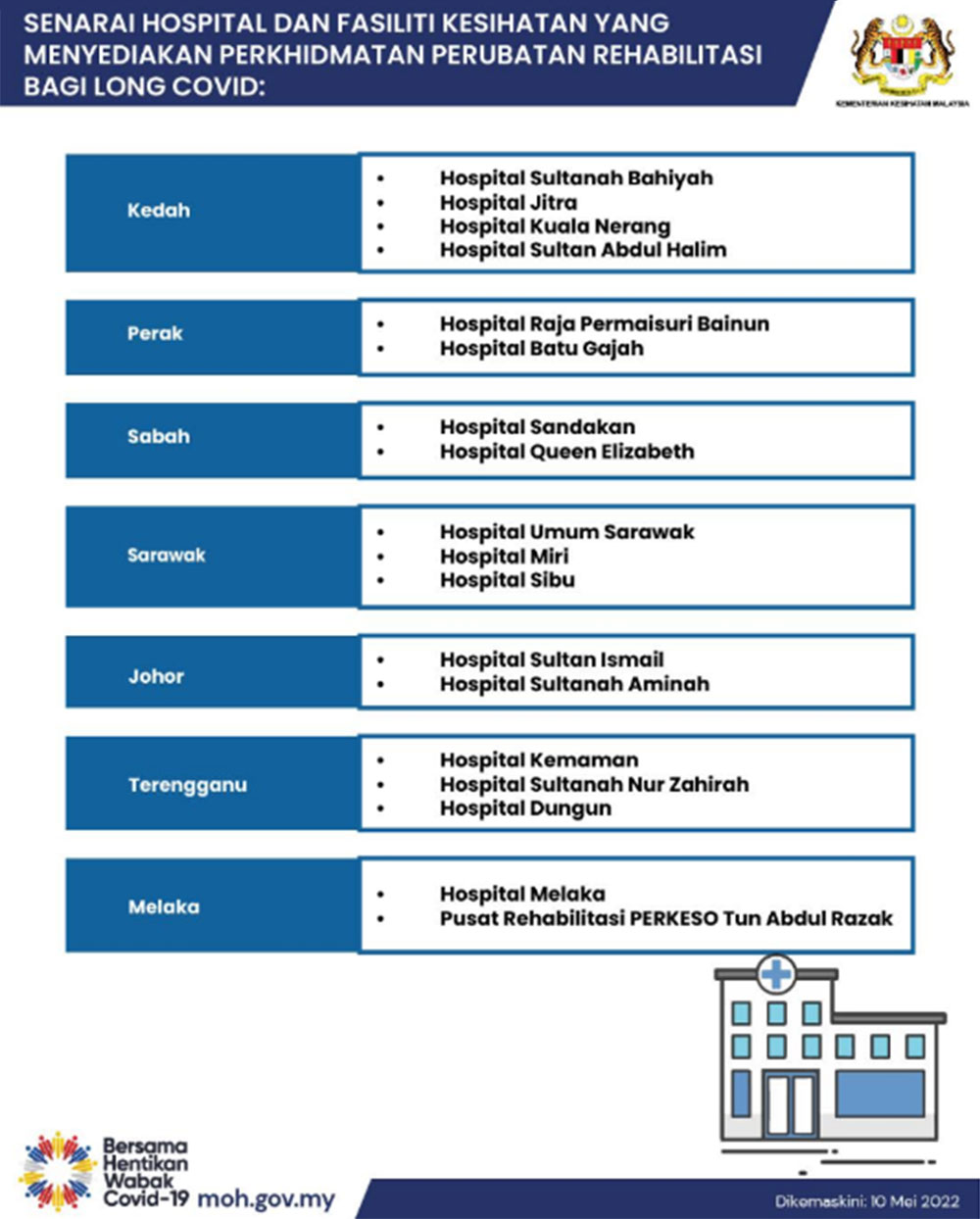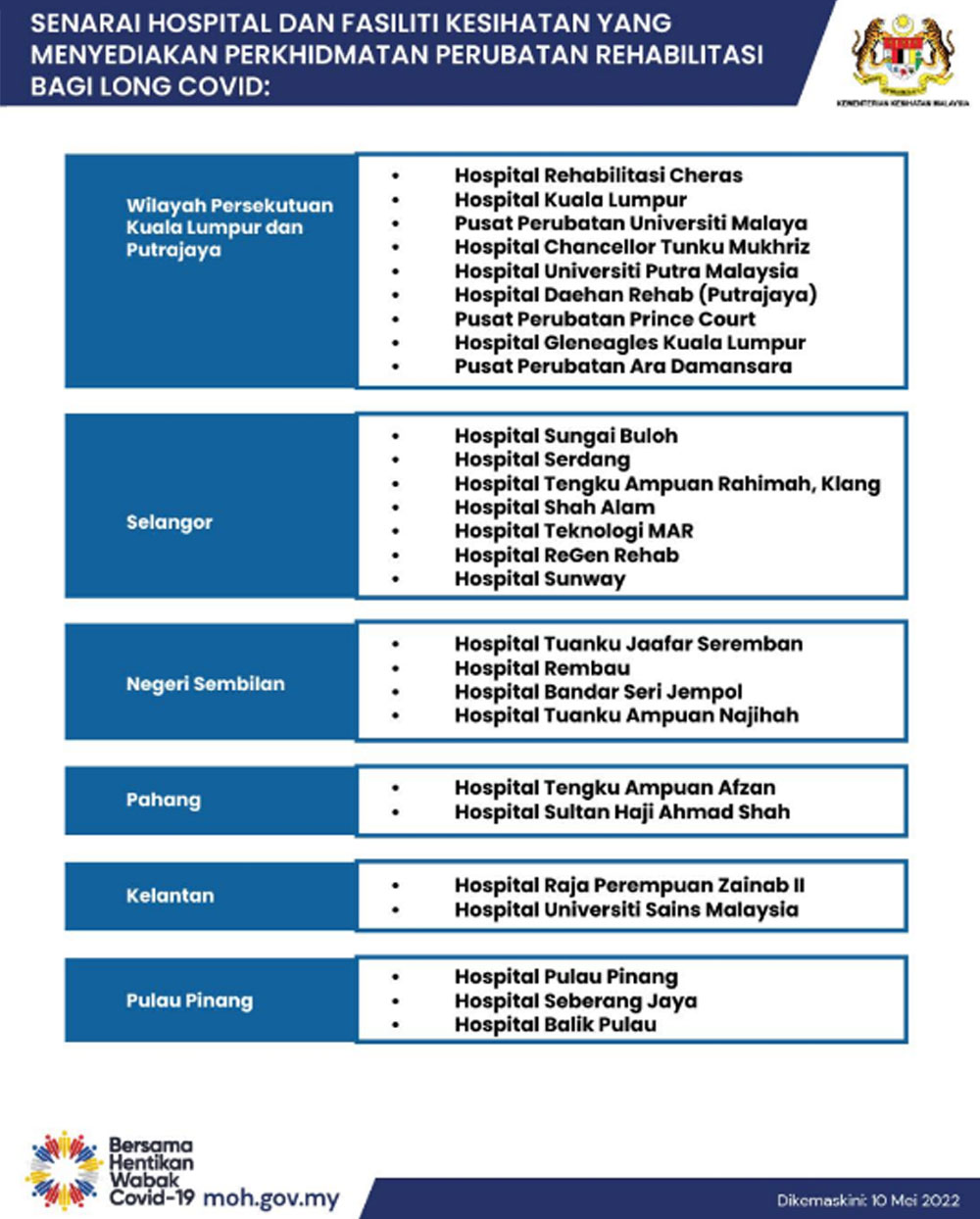LETTER | Covid-19 has existed for more than four years after it was first reported in Wuhan, China, in December 2019.
Up to March 2024, there have been a total of about 700 million cases worldwide, with seven million deaths. Meanwhile, in Malaysia, an astonishing 5.27 million cases are reported, with 37,000 of them succumbing to the illness.
Covid-19 also has a high transmission rate, which crippled many healthcare systems worldwide.
A vast amount of people developed mid to long-term post-Covid symptoms after recovering as well. These residual symptoms are also known as Long Covid.
So, what exactly is Long Covid?
Persistent Covid-19 symptoms will lead to a condition with different terms used to address it, such as Post Acute Covid Syndrome (PACS), Long Covid, and post-acute sequelae of Covid-19, but what is of concern is the duration of the symptoms of post-Covid-infection.
Long Covid is the persistence of symptoms for more than four weeks from the first onset of symptoms based on the definition by the Centres for Disease Control and Prevention (CDC) of the US.
Globally, in 2023, it was estimated that 65 million individuals developed Long Covid.
According to the latest study conducted at Universiti Malaya Medical Centre among healthcare workers, respondents with persistent symptoms above four weeks were (50.7 percent), above three months (31.4 percent), and above six months (20.9 percent).
The most common Long Covid symptoms above four weeks were fatigue (27.9 percent), cough (25.1 percent), and decreased physical strength (20.5 percent).
In the study, it is also found that the female gender, asthma comorbidity, and those with severe Covid-19 infection are at higher risk of developing Long Covid. Conversely, it was found that those who received vaccination boosters had a lower risk of developing Long Covid.
What is worrying about Long Covid?
Long Covid consists of a constellation of symptoms, with the real pathomechanism still unknown. Several research studies have examined how Covid-19 affects patients after an acute infection and discovered that the symptoms of Long Covid could number above 100.
But Long Covid isn’t just about health. It spills over into daily life, affecting jobs, social life, and mental well-being.
Imagine not being able to work or socialise like you used to. It’s a scenario that many are living, impacting their livelihood and mental health, as noted in a psychiatry study in the medical journal Lancet.
Among the most common symptoms of Long Covid are fatigue, muscle and body aches, loss of smell, joint pain, cough, headache, sleep disturbance, and shortness of breath.
Long Covid is not limited to such symptoms as it could also include other more severe symptoms such as chest pain, stroke, brain fog, and mental health issues.
Fatigue, one of the most common Long Covid symptoms, could cause a constellation of complaints including tiredness, sleepiness, little energy, or even burnout. Those suffering from prolonged fatigue could also lose interest in doing anything.
What help can be offered to those with Long Covid?
There are no available treatments for Long Covid currently and the focus is on the rehabilitative process so that the individuals can return to their best functional level.
Some rehabilitative programmes include symptom-relieving positions to relieve those with shortness of breath, breathing techniques for those with persistent coughs, and muscle-strengthening exercises that benefit those with weakened muscles.
Based on the infographics published by the Health Ministry in 2022, there are different facilities by the ministry, university hospitals, private hospitals, and rehabilitation centres under the Human Resources Ministry that offer rehabilitative services for Long Covid patients.


In conclusion, the best way to prevent Long Covid is to protect yourself and others from becoming infected. The US CDC also recommends Covid-19 vaccination as vaccinated people are less likely to report Long Covid than unvaccinated people.
The views expressed here are those of the author/contributor and do not necessarily represent the views of Malaysiakini.

